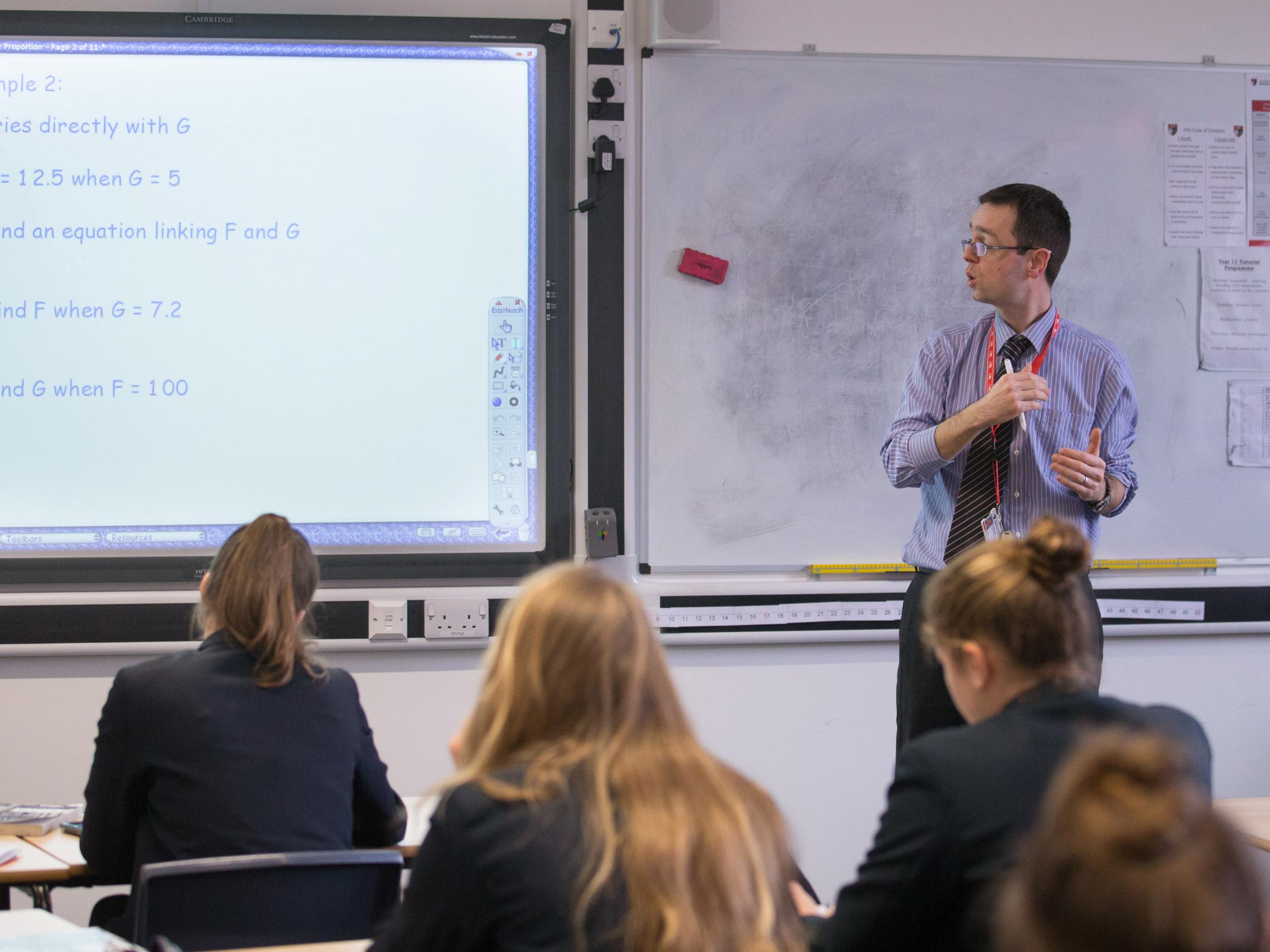Short-sightedness increases with every year in education
Myopia epidemic affecting 90 per cent of pupils in East Asian countries is consequence of world-leading education systems

Your support helps us to tell the story
From reproductive rights to climate change to Big Tech, The Independent is on the ground when the story is developing. Whether it's investigating the financials of Elon Musk's pro-Trump PAC or producing our latest documentary, 'The A Word', which shines a light on the American women fighting for reproductive rights, we know how important it is to parse out the facts from the messaging.
At such a critical moment in US history, we need reporters on the ground. Your donation allows us to keep sending journalists to speak to both sides of the story.
The Independent is trusted by Americans across the entire political spectrum. And unlike many other quality news outlets, we choose not to lock Americans out of our reporting and analysis with paywalls. We believe quality journalism should be available to everyone, paid for by those who can afford it.
Your support makes all the difference.Spending more of your life studying could cause you to lose your sight, according to UK research which found every year of education incrementally increases short-sightedness.
The difference is so pronounced that if the average person who left school at 16 had 20/20 vision, the average university graduate would legally need glasses to drive, researchers from Bristol and Cardiff Universities said.
Rather than the stereotype of bespectacled pupils being more studious or intelligent, it is the hours spent working on tasks indoors and at close distance while the eyes are developing that affects sight, they added.
Short-sightedness, or myopia, is one of the leading causes of visual disability around the world and rates are rising rapidly.
By 2050 half the world’s population, around 5 billion people, are expected to be short-sighted compared to roughly 1.4 billion people today – 10 per cent of these will have severe myopia, which carries a risk of blindness.
In high income Asian countries like Singapore, South Korea and China – which have intensive education pressures including homework at preschool level – as many as 90 per cent of people are short-sighted by the time they leave school at 18.
Half of these children are already myopic by the end of primary school, compared to 10 per cent of British children.
But the authors add that in the UK and elsewhere, towards more intensive early years education raises the length of time over which short-sightedness can become severe and more time outdoors should be prioritised.
“Our study provides strong evidence that length of time spent in education is a causal risk factor for myopia,” said Professor Jez Guggenheim from the School of Optometry and Vision Sciences at Cardiff University.
“Policymakers should be aware that the educational practices used to teach children and to promote personal and economic health may have the unintended consequence of causing increasing levels of myopia and later visual disability as a result.”
For their study, published in the BMJ today, Professor Guggenheim and colleagues recruited 68,000 British men and women who are part of the UK Biobank programme.
They looked at genetic markers which are associated with short-sightedness and staying longer in education, as well as their actually sight and education information.
Using a statistical process called Mendelian randomisation they tested the link between these genetic markers and found that people who were genetically short-sighted were no more likely to stay in school.
But people who were genetically predisposed to studying longer, were more likely to be short sighted, suggesting its an effect from our environment not our genes.
This effect was so pronounced that each year in education was associated with a decrease of 0.27 dioptres – the unit used to calculate how powerful glasses need to be when correcting sight to 20/20 vision.
Sight loss of -1 dioptre would make a license plate blurry and fall below the level needed to pass a UK driving test.
Inherited genetic factors are still a significant drive but this shows that environmental development also plays a major role. Previous studies have suggested a lack of time outdoors, exposed to natural light, is a major factor, and working on things close to you is another element.
To address this, schools in Asia have begun using daylight simulating “bright lights” in classrooms.
However, the authors say it has yet to be proven that these classrooms “provide any protection against myopia” or mimic natural light.
“The best recommendation, based on the highest quality available evidence at the moment, is for children to spend more time outside,” they conclude.
Professor Ewan Birney, director of the European Bioinformatics Institute, said this showed the powerful insight genetic work can give.
“It is not absolutely definitive evidence for a causal link – which ideally should also have a mechanistic explanation – but it is strong evidence,” he added.
Writing in a BMJ editorial, Australian academics Professor Ian Morgan, Dr Amanda French and Professor Kathryn Rose – who were not involved with this study – said: “[Educational] league tables dominated by the East Asian countries with epidemic levels of myopia, regularly lead to calls for other countries to emulate East Asian schooling.
“In response, we need to remember that East Asian education systems have played a major role in producing the current epidemic of myopia and high myopia, and that these systems will require substantial change to help protect the vision of future generations.”
Join our commenting forum
Join thought-provoking conversations, follow other Independent readers and see their replies
Comments